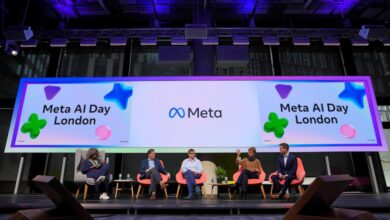Power and Privacy Dilemmas of Generative AI

Embark on a fascinating exploration of generative artificial intelligence (AI) to discover its immense potential and the crucial privacy dilemmas it brings to light.
This journey will take you through the groundbreaking progress in generative AI, the pressing privacy issues it raises, effective strategies to tackle these obstacles, best practices in data management including on AI Meeting Asistant platforms like Bluedot, and the vital importance of educating personnel on the ethical utilization of AI.
Exploring Generative AI for Innovation
Generative AI, a branch of artificial intelligence, leverages existing datasets to produce creative information and ideas, departing from the conventional AI emphasis on identifying patterns and classifying data. Through the integration of AI algorithms and machine learning methods, generative AI facilitates the generation of fresh content.
Generative AI finds extensive applications in various fields such as image synthesis, text creation, video generation, and music composition. Platforms like ChatGPT showcase the effective use of generative AI in enhancing chatbot interactions, leading to more human-like dialogues and advanced natural language processing capabilities.
Exploring the Impact of Privacy in Generative AI
Generative AI technology introduces a host of privacy concerns related to the processing of personal data and the potential generation of sensitive information. Interactions with AI systems may inadvertently capture personal details such as names, addresses, and contact information. The use of personal data in generative AI models can result in the unintended exposure or misuse of such information.
When training data contains confidential information like medical records, financial data, or other personal identifiers, there exists a significant risk of generating sensitive content that could breach privacy regulations across various regions, consequently jeopardizing individuals’ privacy.
Revolutionizing Data Gathering to Boost Efficiency
Utilizing cutting-edge AI technologies like ChatGPT, companies harness user data to elevate operational effectiveness and enhance the accuracy of machine learning frameworks. This valuable information includes user commands, conversation logs, and AI-generated outputs.
Emphasizing utmost respect for user privacy and data protection, OpenAI, the mastermind behind ChatGPT, takes extensive measures to ensure anonymity and data amalgamation for identity preservation. By adopting temporary data storage practices and enforcing stringent security protocols, they fortify their systems against breaches while upholding regulatory compliance.
Understanding the Relationship Between Data Privacy Regulations and AI Integration
When it comes to the ethical incorporation of AI and safeguarding personal data, data privacy laws, including the GDPR, are key players. Companies need to implement security protocols to safeguard personal information from unauthorized access, breaches, and online risks, all while meeting their legal responsibilities. Compliance with data privacy regulations is essential in addressing privacy concerns associated with AI usage.
Training Employees for Ethical AI Use
Companies need to educate their staff on using AI ethically to address privacy issues effectively. This training should educate employees on the privacy implications of AI, emphasize the importance of protecting personal information, and highlight compliance with privacy regulations. It is essential for employees to grasp the risks of mishandling sensitive data and understand the potential consequences for all involved parties.
Privacy Implications
By promoting a privacy-centric approach and offering clear guidance, companies can ensure that employees comprehend privacy risks. This empowers them to actively protect personal data across the entire AI process.
Achieving Optimal Privacy Measures in AI
For companies delving into AI privacy, incorporating the foundational concept of privacy by design in the development of AI systems is crucial. This entails focusing on aspects like data anonymization, limited data gathering, and strong data security protocols.
Transparency and obtaining user consent play pivotal roles in ensuring that individuals have a clear understanding of how data is collected and processed within AI systems. Implementing stringent data security measures such as encryption and strict access controls becomes imperative in protecting sensitive personal information.
Sustained monitoring and adherence to data privacy laws provide organizations with the ability to adapt to the ever-evolving landscape of privacy regulations, thereby reducing the risks associated with AI implementation.
Challenges stemming from generative AI necessitate a proactive approach towards privacy preservation. This involves prioritizing privacy safeguards, adhering to data privacy statutes, and educating staff on effective data handling methods. By embracing strategies centered around privacy, companies can harness the advantages of generative AI while respecting individuals’ privacy rights and fortifying data security.
Related
Article provided with permission from AppleWorld.Today



![[Webinar] Revolutionizing Document Review with Generative AI: Present and Future – June 27th, 1:00 pm – 2:00 pm ET | EDRM – Electronic Discovery Reference Model [Webinar] Revolutionizing Document Review with Generative AI: Present and Future – June 27th, 1:00 pm – 2:00 pm ET | EDRM – Electronic Discovery Reference Model](https://europeantech.news/wp-content/uploads/2024/06/og.16197_0825-390x220.jpg)